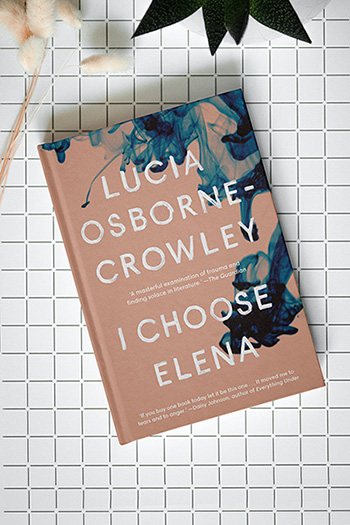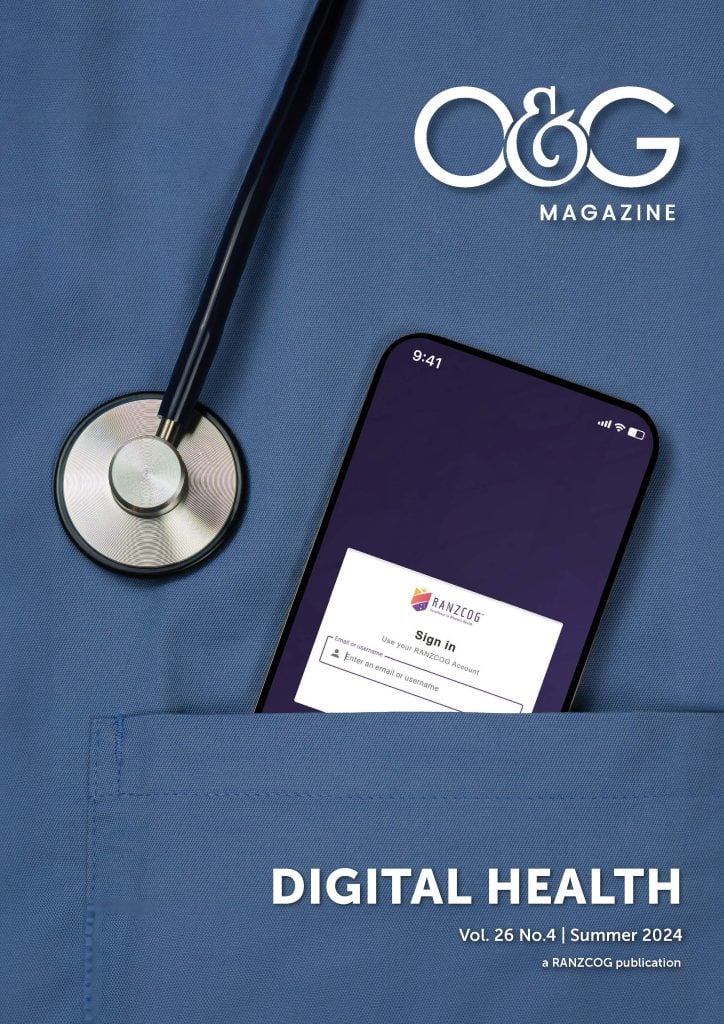I Choose Elena sat on my bookshelf for a year; I was reluctant to read a book that I knew would be difficult and confronting. When I finally picked it up, I read it in one sitting, and ever since it’s been the one book that I’ve wanted to press into the hands of every obstetrician gynaecologist. Because we’ve all met ‘that woman’, but rarely, if ever, do we hear her story told with such honesty and hard-won insight.
Lucia Osborne-Crowley was a high-achieving, extroverted high-school student, training as an elite gymnast, when she was raped by a stranger at age 15. She told no one and attempted to suppress memories of the attack. In the years that followed, she began to suffer from intrusive flashbacks, nightmares and panic attacks. She stopped gymnastics training because she lost her sense of where her body began and ended and repeatedly injured herself. And she developed recurrent, severe abdominal pain and dysfunctional bleeding that led to a merry-go-round of repeated emergency department visits, scans, and laparoscopies.
Osborne-Crowley was eventually diagnosed with endometriosis and Crohn’s disease. It was many more years before she was able to acknowledge the role that the rape, and the subsequent suppression of traumatic memories, played in her ongoing mental and physical ill-health.
Osborne-Crowley is a journalist and a lawyer, and she skilfully combines her story with her research into the various factors that played a role in her journey. She delves into our current understandings of post-traumatic stress and how the interplay of the psychological, nervous and immune systems can lead to chronic physical disease—including inflammatory conditions such as endometriosis. She discusses gendered aspects of medical care and the research that shows how women are treated differently than men when they present with pain. She examines the culture of violence in our society and the culture of shame and silence that further traumatises victims of violence, particularly sexual violence.
Osborne-Crowley’s descriptions of her many interactions with health professionals make for uncomfortable reading, and it is apparent there are no easy answers. Only once did a doctor ask her whether she had a history of sexual assault; her reaction was to run away and to ignore the follow-up calls that he made. What she sees now, she writes, is that she was presenting to emergency as a traumatised young woman “whose body was trying to say something her mind could not.” She recognises that no doctor could have helped her while she was trapped by the need to stay silent. I Choose Elena is the breaking of silence. The title refers to the support that Osborne-Crowley derived from reading writers such as Elena Ferrante, whose female protagonists have the vulnerability and resilience to overcome their pasts and ‘possess their own narratives.’
I Choose Elena is Osborne-Crowley’s own narrative, told on her own terms. When she discusses research, it is not an attempt to present a balanced academic review, but rather to show how certain aspects have resonated and helped her to understand her story. As such, I Choose Elena offers health workers insights that could never be gained from a textbook or a workshop, or even from an open conversation in a clinical setting, with all its inbuilt imbalances in knowledge and power.
Literature – fiction and non-fiction – has the power to change our perspectives in ways that are startling or humbling or inspiring. In a future edition of the O&G magazine book review, we’d like to make a compilation of texts that have changed the way readers approach or view their work in women’s health. If you’d like to contribute, please email: [email protected] with the name of the book and author, and a brief paragraph on how and why it has affected you.
I Choose Elena by Lucia Osborne-Crowley, Allen and Unwin, 2020.






Leave a Reply